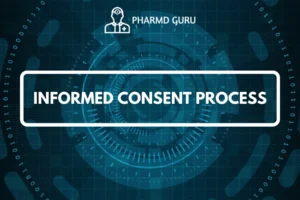Institutional Review Boards (IRBs) play a vital role in ensuring the ethical conduct of research involving human participants. As independent committees, IRBs are responsible for reviewing research protocols, monitoring ongoing studies, and safeguarding the rights and welfare of participants. This article provides an overview of the composition, responsibilities, and procedures of an IRB.
SCROLL DOWN TO THE BOTTOM OF THE PAGE FOR ACTUAL NOTES
TABLE OF CONTENTS:
- Introduction
- Composition of an IRB
- Responsibilities of an IRB
- Procedures of an IRB
Introduction:
An Institutional Review Board (IRB) is an independent committee established to protect the rights and welfare of human participants involved in research studies. IRBs ensure that research protocols comply with ethical guidelines, regulatory requirements, and applicable laws to uphold participant safety and integrity of the research.
Composition of an IRB:
The composition of an IRB is crucial for its effective functioning and ethical decision-making. An IRB typically consists of diverse members with expertise in various fields, including:
- Researchers and Scientists: These members contribute their knowledge and experience in research design, methodology, and data analysis.
- Clinicians and Healthcare Professionals: Their expertise helps evaluate the potential risks and benefits of the research to participants’ health and well-being.
- Ethicists: Ethicists provide ethical expertise and guidance in assessing the ethical implications of the research.
- Community Representatives: These members represent the broader community and ensure that research aligns with community values and interests.
- Legal Experts: Legal experts contribute their knowledge of relevant laws and regulations to ensure compliance.
- IRB Administrator: An IRB administrator manages administrative tasks, coordinates meetings, and assists with protocol submissions.
The diverse composition of an IRB ensures a comprehensive and balanced evaluation of research protocols from various perspectives.
Responsibilities of an IRB:
The primary responsibilities of an IRB include:
- Reviewing Research Protocols: The IRB carefully evaluates research protocols to ensure their scientific validity, ethical soundness, and compliance with regulatory requirements.
- Participant Protection: The IRB ensures that research studies prioritize participant rights, welfare, and informed consent. It assesses the risks and benefits associated with the research and ensures appropriate measures are in place to minimize potential harm.
- Informed Consent: The IRB reviews the informed consent process to ensure that participants receive adequate information about the study, its purpose, risks, benefits, and their rights. The IRB ensures that informed consent is voluntary, comprehensible, and appropriately documented.
- Continuing Review: The IRB conducts ongoing reviews of approved studies to monitor participant safety, assess any emerging risks, and evaluate the progress and ethical conduct of the research.
- Data and Safety Monitoring: The IRB ensures that appropriate data and safety monitoring mechanisms are in place to protect participants and maintain the integrity of the research.
- Education and Training: The IRB promotes education and training on ethical research practices for researchers, study staff, and IRB members to foster a culture of ethical research conduct.
Procedures of an IRB:
The procedures followed by an IRB typically include:
- Protocol Submission: Researchers submit their research protocols to the IRB for review, providing detailed information about the study’s purpose, methods, risks, benefits, and participant safeguards.
- Initial Review: The IRB conducts an initial review to assess the scientific validity, ethical considerations, and compliance with regulations. The IRB may request modifications or clarifications from the researchers before granting approval.
- Full Board Review: Some research protocols require a full board review, which involves a meeting of all IRB members to discuss and vote on the protocol. The decision is based on the evaluation of risks, benefits, ethical implications, and participant protections.
- Expedited Review: Low-risk studies or certain modifications to previously approved studies may undergo an expedited review by a designated IRB member or a subset of the board.
- Continuing Review: Approved studies undergo periodic continuing review to ensure ongoing compliance, participant safety, and adherence to ethical standards. The frequency of continuing review depends on the level of risk associated with the research.
- Record Keeping: The IRB maintains detailed records of all submitted protocols, reviews, decisions, and correspondence for documentation and regulatory purposes.
ACTUAL NOTES




